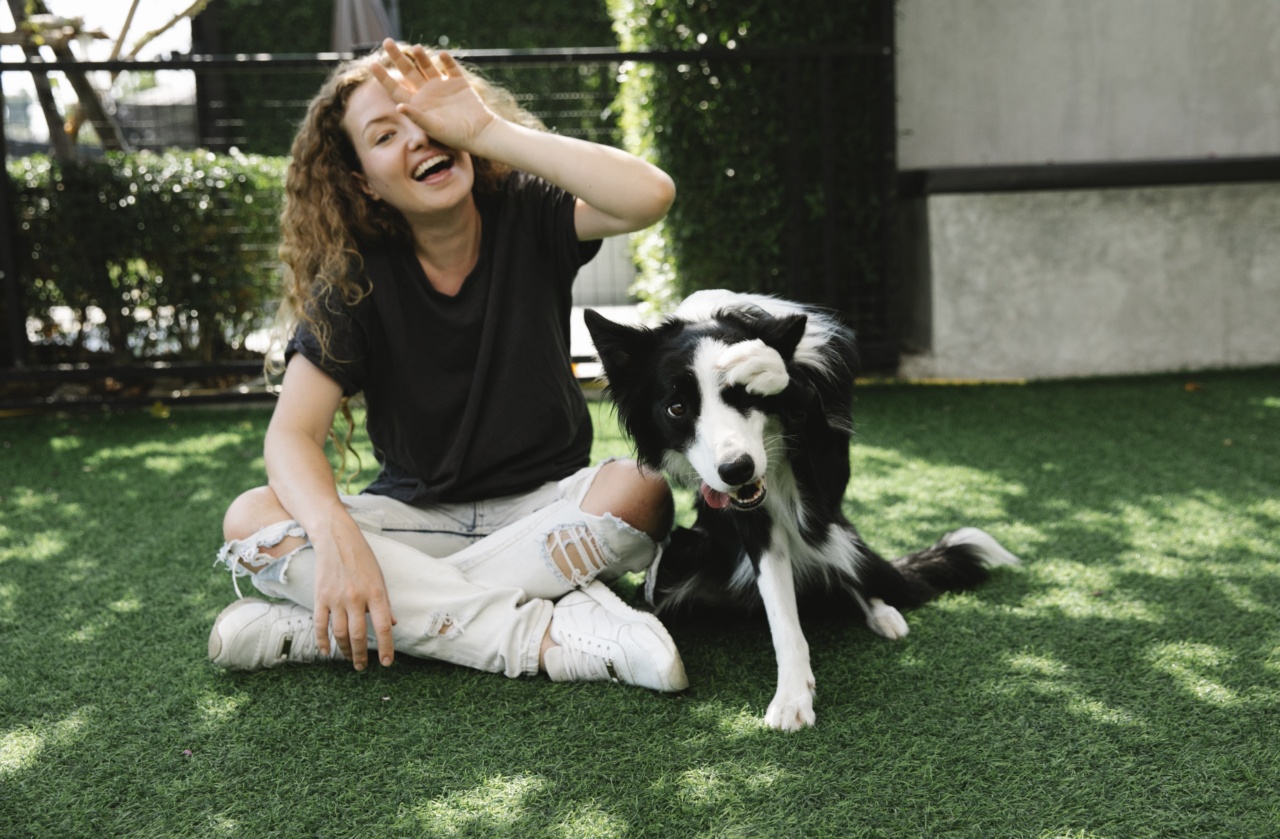Dogs have long been known as man’s best friend. These loyal and sociable animals have a way of bringing joy to their owners’ lives like no other.
From their playful antics to their unwavering loyalty, dogs have a unique ability to brighten up any home. In this article, we will explore the importance of having a friendly dog and the positive impact it can have on its owner’s happiness.
The Benefits of Owning a Friendly Dog
1. Companionship: Dogs are known to be extremely loyal companions. They provide unwavering support and love to their owners, making them feel valued and cherished.
Whether it’s going for walks, cuddling on the couch, or simply being present, a friendly dog can offer a constant source of companionship.
2. Reduced Stress: Studies have shown that interacting with animals can help reduce the levels of stress hormones in our bodies. Petting a dog has been proven to release oxytocin, a hormone that promotes relaxation and happiness.
Thus, having a friendly dog around can help alleviate stress and create a soothing environment.
3. Increased Physical Activity: Dogs are naturally energetic creatures that require regular exercise. By owning a friendly dog, individuals are more likely to engage in physical activities such as walking, running, or playing fetch.
This increased physical activity not only benefits the dog but also promotes a healthier lifestyle for the owner.
4. Improved Mental Health: Dogs have shown to have a positive impact on the mental well-being of their owners. They are great listeners and provide a sense of emotional support, which can help reduce feelings of loneliness, anxiety, and depression.
Owning a friendly dog creates a sense of purpose and boosts self-esteem.
Training a Friendly Dog
1. Socialization: To ensure your dog is friendly, it is essential to start socializing them from a young age. Introduce them to various people, animals, and different environments to help them become comfortable and well-behaved in any situation.
This will help prevent aggression or fear-based behaviors.
2. Positive Reinforcement: When training a friendly dog, it is crucial to use positive reinforcement techniques. Reward your dog with treats, praise, and affection when they exhibit friendly behavior.
This will encourage them to continue behaving in a positive and friendly manner.
3. Obedience Training: Teaching your dog basic obedience commands such as sit, stay, and come can also contribute to their friendliness.
A well-behaved dog is more likely to interact positively with others and be less of a potential nuisance to friends, family, and strangers.
Choosing the Right Dog Breed
1. Temperament: When looking for a dog that will be naturally friendly, consider the breed’s temperament. Some breeds, such as Golden Retrievers or Labrador Retrievers, are known for their friendly and sociable nature.
Research different breeds to find one that aligns with your preference for a friendly and affectionate pet.
2. Size and Energy Level: The size and energy level of a dog can also impact their friendliness. Smaller dogs, such as Beagles or Cavalier King Charles Spaniels, tend to be more approachable, especially for children and the elderly.
However, it’s important to match the energy level of the dog with your own, as higher energy levels may require more exercise and attention.
3. Consider Adoption: Adopting a dog from a shelter is a great way to give a friendly dog a second chance at a happy life. Many shelter dogs are in need of loving homes and will be forever grateful for the love and care they receive.
The shelter staff can often provide insights into the dog’s temperament and compatibility with different household environments.
The Role of a Happy Owner
1. Provide Proper Care: A happy owner ensures that their dog’s basic needs are met, such as providing nutritious food, regular exercise, and routine vet check-ups.
By taking good care of their furry friend, owners help ensure their dog’s overall well-being and happiness.
2. Spend Quality Time: Dogs thrive on attention and love to spend time with their owners. Engage in activities that your dog enjoys, such as playing fetch, going on walks, or even just cuddling on the couch.
Spending quality time together strengthens the bond between owner and dog, promoting happiness for both parties.
3. Training and Boundaries: A happy owner provides their dog with structure and consistent training. Dogs feel secure when they understand what is expected of them and what behaviors are acceptable.
Clear boundaries and positive reinforcement help create a well-behaved and happy dog.
Conclusion
In conclusion, owning a friendly dog can bring immense happiness to an owner’s life. The companionship, reduced stress levels, increased physical activity, and improved mental health that come with having a friendly dog are undeniable.
By investing time and effort into training and caring for a dog, owners can experience the joys of a happy and fulfilling relationship with their furry friend.
























